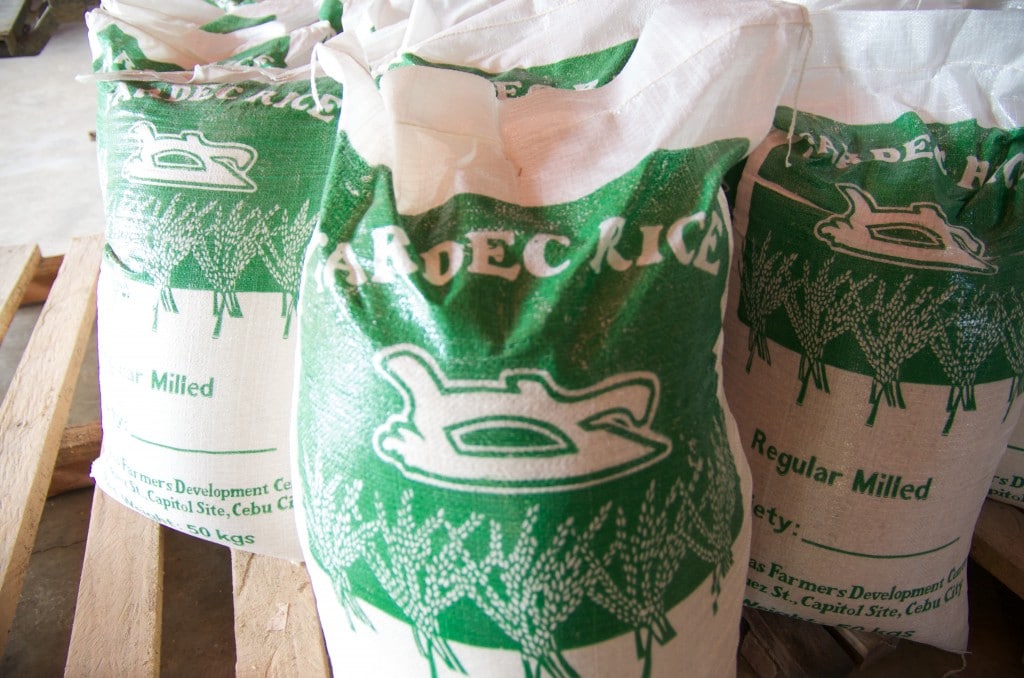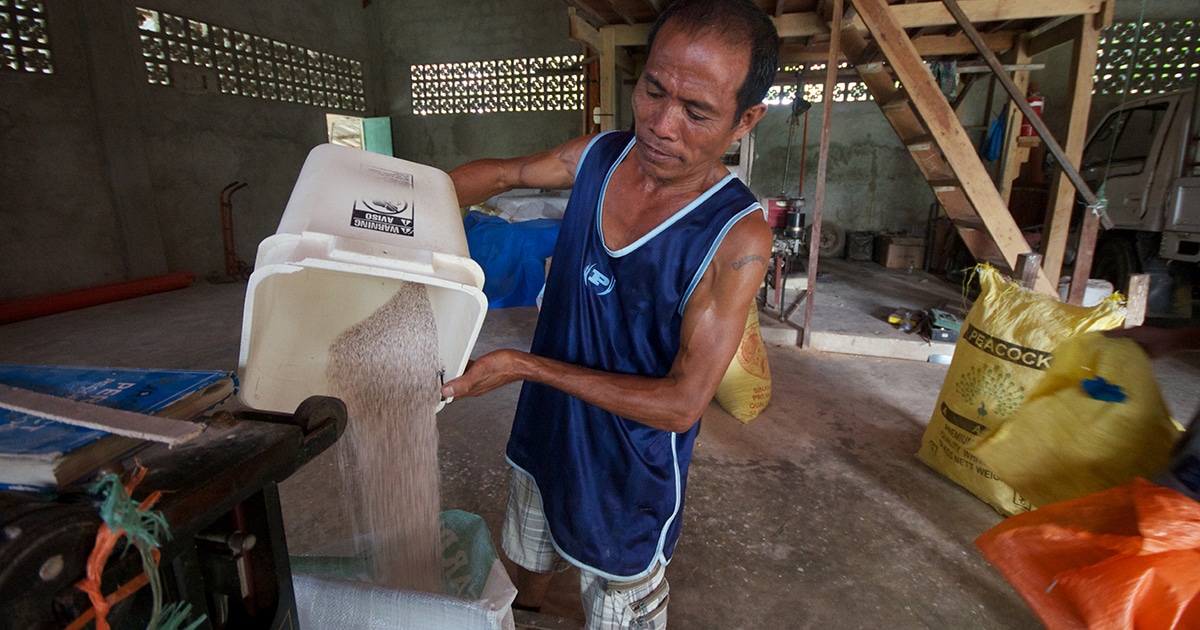Before the rice mill was built in Trinidad town, located in the Bohol province of the Philippines, the closest mill was seven kilometres away. To get their rice to the mill, farmers would have to make the journey on foot, carrying a 40-kilogram bag of rice themselves, or by hiring a motorcycle if they could afford it.
The cost of reaching the far-off mill and using its facilities meant the farmers had to pay more to mill their rice—the process by which the shells of the rice are pulled off to reveal the edible kernel inside. Their only alternative was relying on the merchants who came into their area to buy rice, albeit at a lower price.
The long-term solution of constructing a rice mill in Bohol was part of the Small Enterprise for Economic Development (SEED) program spearheaded by the Farmers’ Development Centre (FARDEC), a regional peasant support network. Since 1990, FARDEC has been a close partner of the Primate’s World Relief and Development Fund, which has helped support the rice mill as a means of improving farmers’ lives.
Through the 2015 Gifts for Mission gift guide, Canadian Anglicans can offer support for the project in the form of a $100 donation to fund a rice mill in the Philippines. Each donation enables the rice mill to stay open for another week, covering the $100 in costs per week for fuel for the generator, equipment and staff salaries.
The positive effect of the rice mill on farmers’ lives is substantial. As an organization dedicated to fair trade, FARDEC is committed to ensuring that farmers earn enough money to support themselves and their families.

With a close local mill that pays farmers more for their rice, charges them less to mill it, and allows them to buy rice bran for livestock at a lower price, farmers have more time on their hands and money in their pockets to buy more food for their families and to send their children to school.
The congregation of area farmers at the rice mill also allows them the chance to learn about organic farming. FARDEC’s mission includes a focus on educating farmers in progressive agricultural techniques, and the rice mill helps farmers learn organic farming practices, using local grains of rice rather than imported rice breeds.
Kevin Vilbar, a staff member for FARDEC’s Sustainable Agriculture Program, noted that the rice mill offers support to farmers in the face of monopoly control by the Alturas Group of Companies (AGC) by buying their rice for 50 per cent more than the existing market price set by the AGC.
“A $100 donation [through Gifts for Mission] is very helpful for additional support in the rice mill,” Vilbar said. “In terms of its market competition our capital is very small compared to the existing monopoly trader.”
The SEED program includes four buying centres in the Filipino municipalities of Ubay, Trinidad, San Miguel and Dagohoy, which are run by volunteers. Capital limitations led to a reduction in the number of buying centres from seven to the present four, which hampers the ability to cope with increasing supply of rice from farmers.
Donations from Anglicans, Vilbar said, are a “big help” in allowing FARDEC to retrieve its buying centres and offer wider coverage for area farmers.
Interested in keeping up-to-date on news, opinion, events and resources from the Anglican Church of Canada? Sign up for our email alerts .

